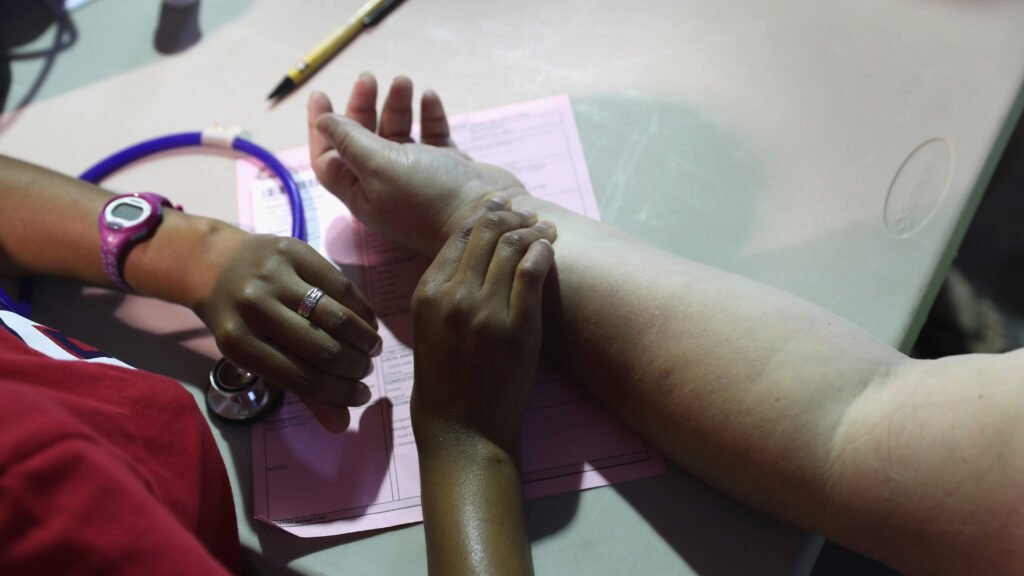It will be years before the U.S. feels the full weight of the recent sweeping Medicaid cuts. But the free and charitable clinics that act as the last line of defense for the health and well-being of uninsured Americans are already preparing to pick up the pieces.
These nonprofit clinics are the backbone of America’s health care safety net. They deliver high-quality, free, or low-cost care to uninsured and underserved Americans through a blended staff-volunteer model. According to the National Association of Free & Charitable Clinics (NAFC)’s 2025 report, these patients represent some of the most vulnerable populations in the country: Eighty-four percent were uninsured, and 59% were employed but still unable to afford or access health insurance. Seventy-six percent lived at or below 200% of the federal poverty level, underscoring the economic barriers facing too many Americans.
Despite growing demand — driven in part by rising living costs — free and charitable clinics operate under increasing financial strain. In 2024, these organizations delivered more than 6 million patient visits nationwide, with most clinics operating on annual budgets under $250,000. That’s a fraction of what larger providers, like federally qualified health centers, receive.
Conversely, the NAFC report found that 86% of free and charitable clinics do not bill any form of insurance and receive little to no state or federal dollars, underscoring the critical need for private investment to sustain their work.
This funding disparity is particularly troubling given the vital role free clinics play in reducing systemwide costs. By providing preventive and primary care, these clinics help patients manage chronic conditions and reduce the reliance on emergency room visits for non-emergent issues.
Studies show that uninsured people are significantly more likely to visit the emergency room for preventable conditions, and among these patients, nearly one in five treat-and-release visits carry the risk of catastrophic health expenditures — a risk that increases with each subsequent visit.
Already, the number of uninsured people in the United States is projected to reach 27.3 million this year alone. This number will climb even higher now that the “One Big Beautiful Bill Act” has been signed into law. It could cause around 16 million people, including children, to lose Medicaid coverage over the next decade.
What will happen to those 16 million? Many will turn to their local free clinic. Others will resort to emergency rooms, straining hospital systems, and worsening their own long-term financial and physical health.
A patient in Missouri told us she didn’t even know she had diabetes until a diabetic emergency landed her in the back of an ambulance. It wasn’t until she connected with a free clinic in her community that she was finally diagnosed and able to receive consistent care. “Without the clinic,” she said, “we couldn’t have had a doctor prescribe the medications I needed, let alone afford them. Without that support, I would’ve ended up in the hospital again and again. You get out, but if you can’t manage it, you’re right back in.”
Despite the multiplying need, funding sources for free and charitable clinics are few and far between. Nationally, only 13 states offer any public funding to support these clinics, and that support is often minimal. In 2024, Iowa allocated just $374,000 across all 30 of its free clinics. Florida, with nearly 100 clinics, provides approximately $9.5 million — a generous gesture compared with other states, but still modest given the volume of care delivered and the communities served.
Nonprofit and corporate partners are stepping up in response to the need. Their contributions — whether in the form of funding, donated equipment, training, or vaccines — are lifesaving. Over the past two years, Project HOPE partnered with Moderna to secure and distribute donated Covid-19 vaccines to more than 75 clinics across 33 states. Meanwhile, LabCorp’s support has expanded cancer screenings in clinics in North Carolina, enabling earlier detection and better outcomes for uninsured patients.
These efforts are vital, but alone aren’t enough. Free and charitable clinics need sustained and diversified investment, and policies that recognize the critical role they play in upholding America’s health care safety net for millions across the country.
One nurse at a clinic in Joplin, Missouri, told us, “Our funding has to go toward basic operations. Without donated vaccines, we’d have to stop. And that would be devastating for this population.”
Most people don’t know free and charitable clinics exist until they need one. As health advocates rightly mobilize to protect Medicaid, they must also ensure that safety net organizations like free and charitable clinics are not left behind. These are the organizations that will be there to pick up the pieces when the system fails. With Medicaid being left unprotected, people will lose their coverage, and there must be somewhere for them to turn. Without increased support from nonprofits, businesses, and state government, it will be impossible for safety net organizations alone to handle a looming increase in patient demand. Americans cannot afford to keep free and charitable clinics as an afterthought.
If we’re serious about health equity, we need to create a sustainable infrastructure that supports the organizations that make it a reality. The assumption that small nonprofits would simply “figure it out” disappeared when sweeping legislation drastically expanded the very problem they were already struggling to contain. We’ll continue to do the impossible, but we can no longer do it alone. The health of millions depends on it.
Ariana Gordillo De Vivero is senior director of strategic initiatives at the National Association of Free and Charitable Clinics. Harley Jones is U.S. program director at Project HOPE.

